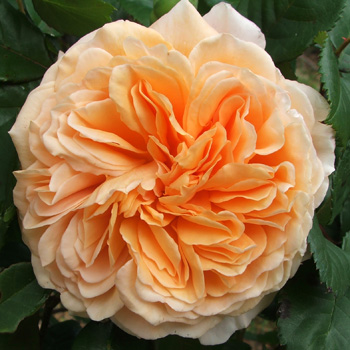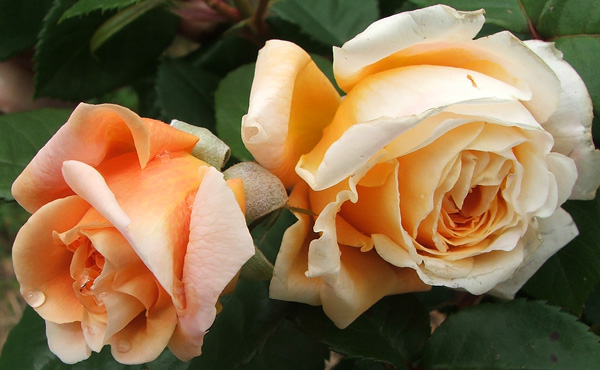Crown Princess Margareta Rose

Crown Princess Margareta Rose
When I was buying climbing roses for the archways in the orchard I wanted fragrance, fragrance, and fragrance. There were a few early casualties, and one of the first replacements was the David Austin English rose called Crown Princess Margareta.
A Fragrant Rose
This rose isn't known amongst my rosy friends - in fact none has heard of her or seen her in any nurseries. I found her at a market, read her label, saw the word fragrant, thought about her colour (apricot), checked her price (cheap) and bought her. My experience of tall David Austin roses is that they can be treated as mini-climbers.
And now, several years on, the Crown Princess is doing very well. She likes her place in Moosey country life - on rose archway number four, opposite the fluffy rose Phyllis Bide. While Phyllis always seems to be in a bit of a rose dither, Crown Princess Margareta is purposeful and floriferous, a chunky, regal looking shrub. She's head-high, and hopefully will get taller.
Exquisitely Apricot
Her bud colours are exquisitely apricot, and when the blooms open they stay quite colour saturated for some time. She isn't all that old, either, by David Austin standards - he introduced her to the rose world in 1999 with the variety name Auswinter.

Crown Princess Margareta Roses
According to a no-nonsense rose supplier's website (thanks, Google) Crown Princess Margareta gets a fragrance rating close to the maximum, and special instructions are to prune her down by about half. That seems a bit harsh - anyway, I want her to think tall.
Seen from afar this rose looks to be in perfect health. But what are these pretty black spots I've just found on some of her leaves? Tsk, tsk... This will not do. Good rose care requires close-up attention - I must remember this.
Have Apricot Roses Met Their Day?
I'm puzzled as to why none of my rose-mad friends have ever met Crown Princess Margareta. Perhaps they're all so wrapped up in Abraham Darby (such a dear man) they can't see past their noses? Or have apricot roses simply met their day? I don't think so...





